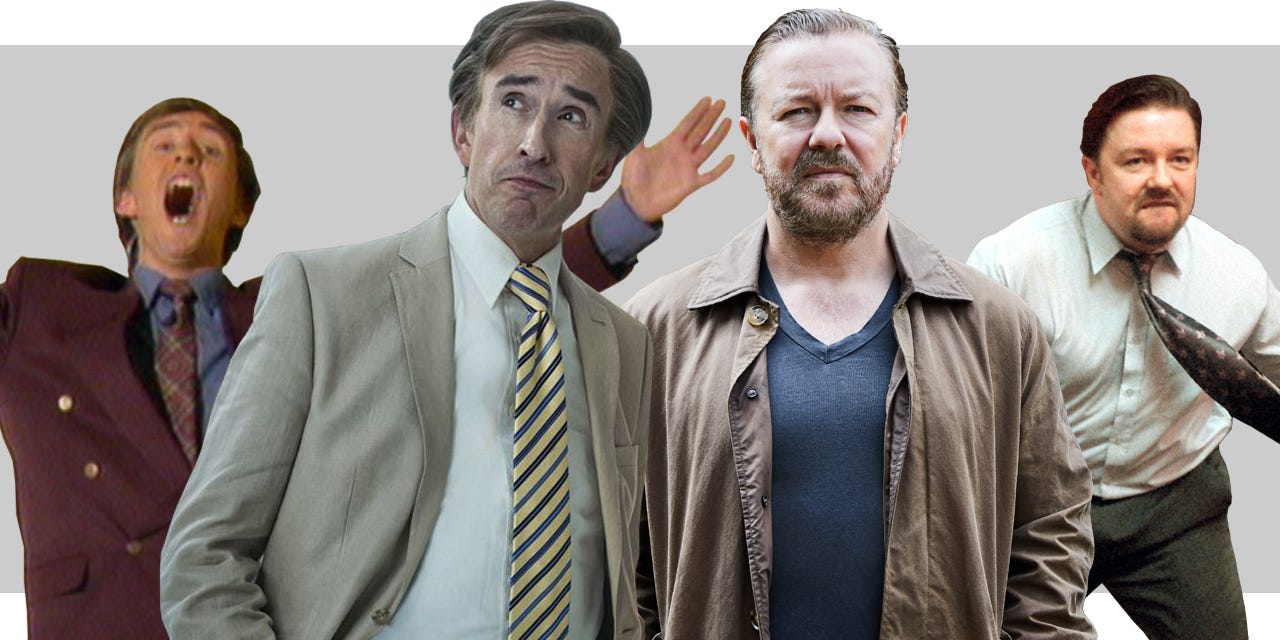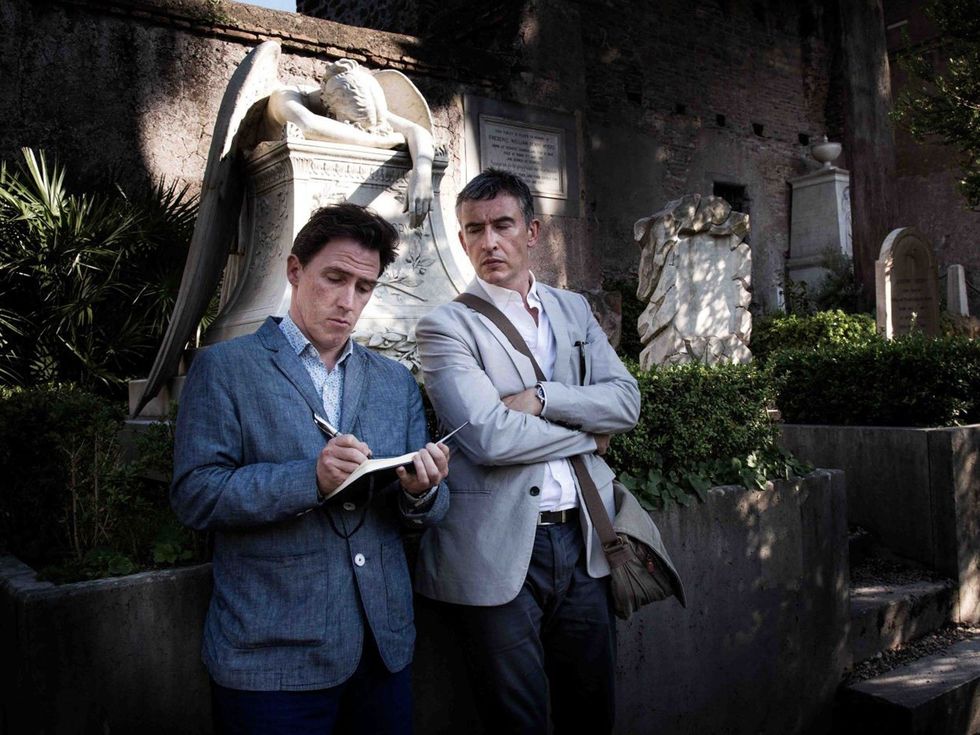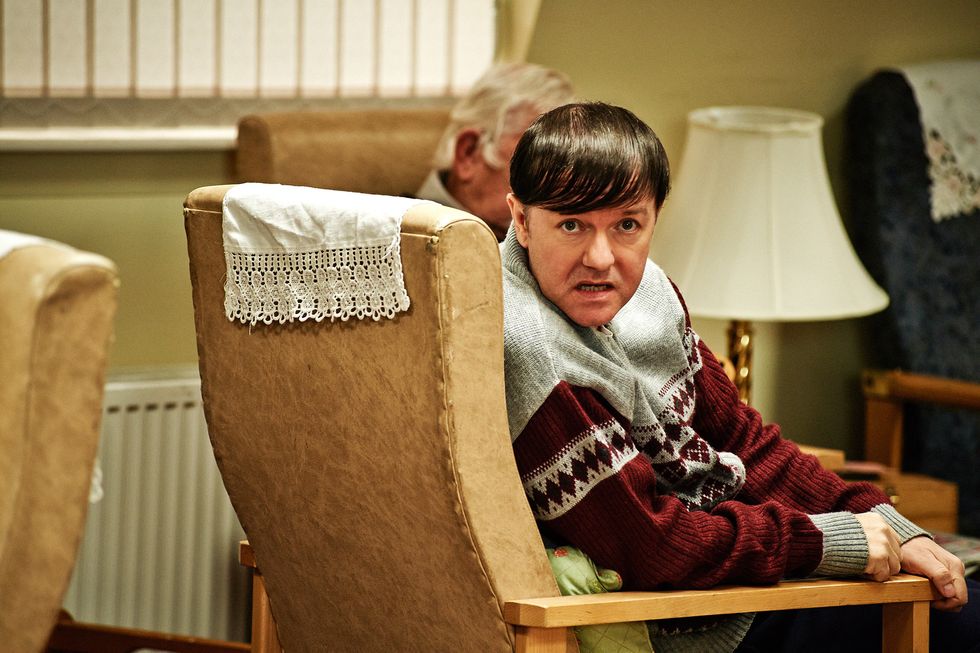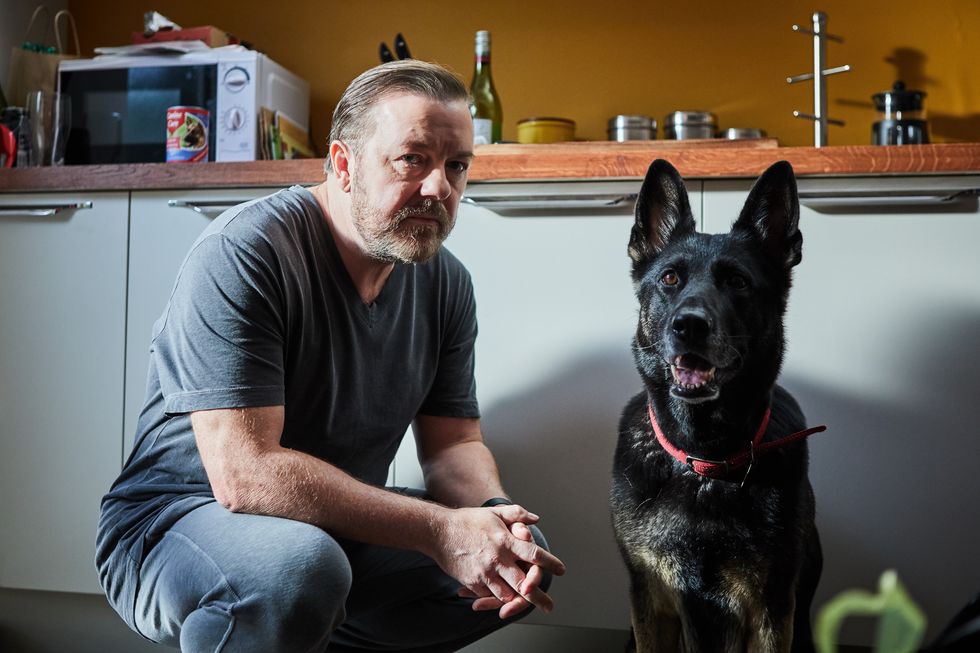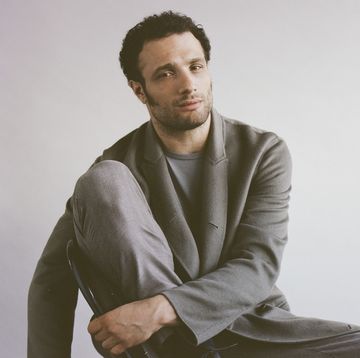In 2004, Steve Coogan and Ricky Gervais were at the top of British comedy. Both had created seminal characters in Alan Partridge and David Brent and become part of the British comedy firmament, and both had an eye on Hollywood.
Fifteen years later, their latest series are dropping within a fortnight of each other, and a lot has changed. Coogan is riding a wave of five-star reviews for This Time With Alan Partridge, while Gervais has turned into an extremely prominent but increasingly divisive public figure, reviled as vehemently as he is adored. So what happened?
Coogan comes into new BBC series This Time With Alan Partridge on the back of a Bafta nomination for Stan & Ollie to go alongside his Oscars nominations and Bafta win for Philomena in 2014 - plus three stellar series of Michael Winterbottom’s The Trip with Rob Brydon. He’s so much in credit artistically that nobody really minds him turning up in Holmes & Watson or Percy Jackson and the Lightning Thief, and he can do odd dramatic parts with Richard Gere and Laura Linney in The Dinner or the Paul Raymond biopic The Look of Love for the hell of it.
The stock of North Norfolk’s most distinguished light entertainer-slash-disc jock, meanwhile, has arguably never been higher. Having been revivified by new writers the Gibbons brothers since the first series of Mid-Morning Matters in 2010, the Partridge-Industrial Complex has kept him bubbling up every couple of years since in the TV specials Welcome To The Places Of My Life and Scissored Isle, the long-gestated film Alpha Papa and two books, I, Partridge: We Need To Talk About Alan and Nomad. Each has had material worthy of Partridge’s sizzle reel.
Gervais has had a much more mixed time of it. His follow up to The Office, Extras, was frequently great. Life’s Too Short was very frequently not. His films Cemetery Junction and The Invention Of Lying passed without incident, and then he wrote, directed and starred in Derek, David Brent: Life On The Road and Netflix action-comedy Special Correspondents. Derek got him a couple of Emmy nominations, but its syrupy tone split audiences. The Brent film got lukewarm reviews and made back £3.5m of its £10m budget. Special Correspondents was widely panned. He’s extremely wealthy, hosted the Golden Globes four times and is a guaranteed stand-up draw – he was the fifth-highest earner in comedy last year with $25m, according to Forbes – but there’s still a sense of drift.
With After Life, Gervais continues his run of work with a sometimes gratingly didactic tone. Derek told you to be nice to people and animals; Special Correspondents told you not to settle for slacktivism; After Life tells you life is not about changing the world but changing yourself. By contrast, Coogan’s work tends to let you make your own mind up. His Stan Laurel is both sweet and steely, with love and resentment for his comedy partner and best friend always bubbling just under the surface. Partridge, meanwhile, isn’t the straightforward provincial Tory he was in 1994 anymore; he’s trying to move with the times, and getting it very, very wrong. "Alan understands how to be socially progressive," as Coogan told the Guardian recently. "He’s not stuck in a sort of weird Enid Blyton-esque cast like Jacob Rees-Mogg."
That has a lot to do with Partridge having been, from his earliest days on On The Hour, a collaboratively written character. Patrick Marber, Armando Iannucci, Peter Baynham, Richard Herring and Stewart Lee all chipped in early on. Since then, Coogan’s had his biggest successes with new collaborators: the Gibbons brothers and Tim Key for Partridge, Winterbottom on The Trip and Philomena and Stan & Ollie co-writer Jeff Pope. Meanwhile, nearly all Gervais’ big projects since Life’s Too Short have been auteur-style works, starring, directed and written by him. On the set of This Time, Coogan often defers to “hired comedy killers” the Gibbons brothers. It doesn’t feel like Gervais has deferred to anyone in some time. That’s great for clarity of vision, sure, but it also explains why After Life sometimes feels like an extension of his Twitter feed.
Gervais’ tease of the new series in which he plays a widower on the brink of suicide – “I'm going to get drunk and take out my anger on every shitty person I meet before I kill myself” – makes it sound like he’s dropped Network’s Howard Beale into Withnail & I. In practice, it’s a disappointing jumble of homespun truisms and vacant nihilism, with Tony a cypher for Gervais to take up pet subjects like how religion is a fantasy and people who like dogs are good, as well as giving him license to insult fat people and call a child a c**t. You’re not meant to like him, but as the reaction to the trailer showed, the idea is to enjoy his unfiltered abuse while he works through his grief and toward redemption. Any redemption he gets doesn’t feel particularly well-deserved or hard-earned though, and for a series that carries itself like a premium comedy-drama, it’s often extremely on-the-nose too: at one point, Gervais’ widower Tony sparks up a heroin-laced joint as Elton John sings "I miss my wife" in ‘Rocket Man’.
When the drama falls flat, you’re struck by how Tony gives Gervais a chance to reproduce his schtick from stage and social media in After Life, that of the transgressive edgelord who knows he’s smarter than you and is here to say whatever he ruddy well likes - a stance that resonates quite differently now that absolutism and iconoclasm are the default mode on Twitter. When Gervais makes jokes about dead-naming trans people and identifying as a chimp - which Stonewall calls "deeply damaging and offensive" - in stand-up show Humanity, for instance, or retweets people revelling in his tour’s simple offensiveness, it comes off as smug and facetious. That noted crank Paul Watson – AKA InfoWars’ @PrisonPlanet – came to Gervais’ defence over the jokes Stonewall condemned should probably have given him pause.
Coogan, who has perhaps wisely resisted social media and retained some creative energy in the process, has gone the other way. “It’s fine to be biting, acerbic and silly when you’re young,” he told the Guardian. “But when you grow up you need to act like a grown-up… maybe that just means I’ve got flabby and middle aged.” The Gibbons brothers have told Empire about wringing “the right kind of laughs” from Partridge, too: “We’re not actually looking for the maximum number of laughs per se… you might get a laugh from a fairly crude joke, but tonally that’s not where we want the programme to sit. You have to be thinking about is it funny, but is it the right kind of funny?” The intricate balance of saying the unsayable while never condoning it is a lot easier for Partridge, a character who’s evolved over 25 years, but the much muddier line between Gervais and his characters looks less like a carefully constructed tension than a case of having his cake and eating it.
Fifteen years on from that point in 2004, the two men have spun into completely different orbits. Coogan has graduated to broadsheet culture supplement staple status; Gervais has his Twitter fiefdom and his devotees but an uncertain critical standing. If you’d told someone in 2004 that Coogan’s marquee project of the next 15 years would be a lead role opposite Judi Dench in a film about the Catholic church splitting up children and their mothers, they’d have been surprised. That he's somehow kept the magic alive with Partridge, perhaps even more so. On the other hand, you told them that Gervais would be writing and directing an unsatisfying and saccharine comedy-drama, they probably wouldn’t. But they might well have felt disappointed. Working alone in a feedback loop with followers who prize his impulse to cause offence and chase that hit of outrage, Gervais feels a long way from the genius of The Office. After Life sadly does nothing to change that.
After Life is on Netflix now. This Time With Alan Partridge is on Mondays at 9.30pm on BBC One.
